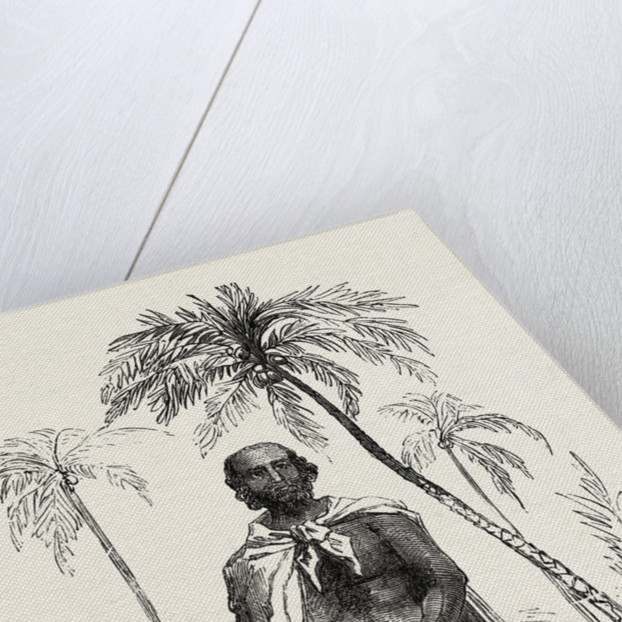The 1848 Rebellion, which sought to free the nation from the British, was led and pretended to be led by Gongalegoda Banda. He was the second child of Wansapurna Dewage Sinchia Fernando, and he was born on March 13, 1809. Peliyagoda David, also known as Aludeniya Banda and Gongalegoda Tikiri Banda, was his name. He was 5 feet 6 inches tall and 35 years old when he wed the daughter of Gongalegoda Menik Rala.
While working as a transport worker on the Kandy road, Gongalegoda Banda settled at Gongalegoda, Udunuwara, where he rose to fame among the Kandyans. Just before the 1848 Rebellion started, he was spotted in the Dalada Maligawa. On July 6, 1848, at the Kandy Kachchery, Gongalegoda Banda led a protest march against unfair taxes.
The movement for the liberation of the island in 1848 was led by leaders such as Gongalegoda Banda, Puran Appu, Dines, and Dingi Rala who were supported by the people and the village headman. On 26th July 1848, the leaders and the supporters entered the historic Dambulla Vihara and at 11.30 a.m., Gongalegoda Banda was consecrated by the head priest of Dambulla, Ven. Giranegama Thera. According to the head priest of Dambulla, Gongalegoda Banda was called “Sri Wickrama Siddapi” and spoke fluently in Sinhala. He asked the people, whether you are on the side of the Buddhists? or the British? On this momentous day, Dines, his brother, was proclaimed Sat Korale’s sub-king, and Dingirala was dethroned. Puranappu was chosen to serve as Gongalegoda Banda’s prime minister or sword-bearer. Along with 400 other people, Puran Appu attended the Gongalegoda Banda’s consecration ceremony.
Following the king’s declaration, he and his army departed Dambulla towards Kandy through Matale in an effort to retake the city from the British.
Some of the tax records were destroyed when they assaulted government facilities, notably the Matale Kachcheri. Eight persons were shot dead by the British soldiers in Kurunegala as a result of attacks Dingirirala started at the same time. On July 29, 1848, and July 31, 1848, at Kandy and Kurunegala, respectively, British Governor Torrington quickly proclaimed martial law.
Gongalegoda Banda and his older brother Dines fled and went into hiding after British soldiers captured Puran Appu. Eight kilometres from Matale in Elkaduwa, Gongalegoda Banda resided in a cave there. A warrant for Gongalegoda Banda’s arrest was issued by the governor. This declaration states that he served as a Dewa Wansa and Dalzil’s assistant in the police department in 1845. Anyone who could provide information regarding his location was eligible to receive a reward of 150 pounds. This suggests he was in charge of the independence movement.
Gongalegoda Banda was detained by Malay troops at Elkaduwa on September 21, 1848. Before being arrested, he put up resistance. From Matale, Gongalegoda Banda was transported to Kandy, where he was detained as a prisoner.
On November 27, Gongalegoda Banda’s trial got underway at the Supreme Court hearings in Kandy. He was accused of high treason for allegedly proclaiming himself the King of Kandy and waging war against the British while claiming to be a direct descendant of the Kandy Kings. He courageously admitted that he was responsible for the aforementioned offences. The Supreme Court ordered that he be hung on January 1, 1849, between 9 and 11 a.m.
After Gongalegoda Banda appealed to the Governor, a proclamation was issued on December 29, 1848, changing the death penalty to 100 floggings and expulsion.
Gongalegoda Banda was flogged 100 times at Kandy on January 1st, 1849, in front of a sizable crowd before being exiled to Malacca (Malaysia). Deportation for life is more terrible than the death penalty, according to Governor Torrington, who informed the Secretary of State in a dispatch. By expelling Gongalegoda Banda, Governor permanently created in the populace a dread of future insurrection against British control. On May 3, 1849, Gongalegoda Banda, who had been sent to Malacca, arrived there. Tikiri Banda Dunuwila, who was also sent there, stated that he passed away on December 1st, 1849, in Malacca.
His passing symbolized the final effort to free the nation from foreign tyranny. The Sri Lankans who struggled against unfair taxation and the mistreatment of defenceless citizens by a foreign colonial administration ought to keep Gongalegoda Banda in mind.
If so, don’t forget to post your thoughts in the comment section while sharing this article.
Stay connected with Buzzer.lk and Buzzer History to find out more of this kind of exciting information.




